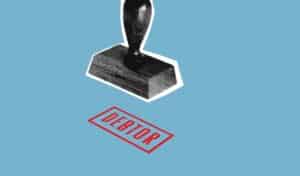Home ∙ Credit Score Ranges ∙ 600 credit score
600 falls within the “fair” credit range. While fair credit consumers may be able to get approval for many traditional loan products, they may have to deal with higher interest rates and lower loan amounts.
600 is considered a fair credit score.
According to the credit bureau Experian, 17% of all consumers have FICO scores that fall in the “fair” credit range.1 If you have a credit score of around 600, you may be wondering what types of loans you can qualify for, or what you can do to improve your overall score. Great news! You’ve come to the right place. Keep reading to learn about the pros and cons of having average credit, as well as ways you can work towards achieving a higher credit score.
Key Takeaways for a 600 Credit Score
Overview of Your
Credit Rating
A 600 credit score is considered fair. Scores between 580 and 669 are said to be in the fair credit score range. You may get approved for loans, but you also might not get the best terms.
Borrowing Options With a
600 Credit Score
Consumers with a 600 credit score may be able to get approval on financial products like personal loans, but may also have to deal with higher interest rates, lower loan amounts, or less favorable terms.
Improving a 600
Credit/FICO Score
Improving payment history, paying off debt, working towards a lower credit utilization ratio, and limiting new credit inquiries are ways consumers can improve a fair credit score.
Is a 600 Credit Score Good?
The three major credit bureaus typically consider credit scores that fall within the range of 580–669 to be fair, or average. The next range up, including scores between 670 - 739, are considered good credit scores. After that, scores between 740–799 and 800 - 850 are respectively considered very good and excellent. Furthermore, borrowers who have a credit score of 600 are sometimes referred to as subprime borrowers. If you fall into this category, know that you’re not alone! CNBC reports that 34.8% of Americans are a part of the subprime credit category.2
What Can I Get Approved For?
Upgrade
4.4 Trustpilot Rating
- Rewards checking
- Personal loans
- Upgrade OneCard
- Premier savings
Upgrade is a finance company that provides affordable and responsible credit products to borrowers in need. They offer spending cards and personal loans. Loans range from $1,000 to $50,000, and personal credit line cards range from $500 to $25,000.
Min Credit Score Depends on the Product You Choose
Consumer Credit Union
4.8 Ninja Star Rating
- Personal loans & auto loans
- Mortgages
- Credit cards
- Banking solutions
Like other credit unions, Consumers Credit Union is an open-to-the-public, not-for-profit institution. This credit union offers a wide range of products and services to members—checking, savings, debit and credit cards, vehicle and consumer loans, money market accounts and certificates.
Check out Their Website for More Information on Products and Services
Creditstrong
4.0 Ninja Star Rating
- Installment or revolving credit
- Flexible pricing
- Build credit history
- Build your savings
CreditStrong offers safe and secure solutions to help borrowers build credit. CreditStrong offers two different types of accounts: installment and revolving. These accounts are a combination of a savings account and either a secured installment loan or a secured revolving line of credit.
No Minimum Credit Score Required
Since many lenders have a minimum credit score required for some of the best financial products, you may have a hard time finding a great deal on a loan with a 600 credit score. However, that doesn’t mean you don’t have any options available.
Instead, be prepared for higher interest rates as well as lower credit limits and loan amounts. As you improve your credit history, you’ll find you have more options and better deals available!
While it’s possible to get a loan or credit card when you have a fair credit score, you may be limited in options and available deals. Here are some products you may consider as you start your research.
Personal Loans
Personal loans, often referred to as personal installment loans, are a kind of loan borrowers can use for just about any reason. Some loans, like auto loans or mortgages, are only available to borrowers looking to purchase a car or a home, but borrowers can use a personal loan for a wide variety of expenses.
Furthermore, there are personal loan products designed for consumers of all credit types, including those with fair credit scores. For example, bad credit loans are one type of personal loan that fair or poor credit borrowers may find helpful. This type of loan comes with easy credit qualifications, and may actually help certain borrowers improve their credit score over time.
Bank Loans
Consumers can also turn to local or chain banks for installment loans. However, the best terms and rates are almost always reserved for borrowers with very good or excellent credit. You may have better luck finding a good deal on a loan with lenders who are more versed in working with borrowers of all credit types.
Car Loans
Car loans, also known as auto loans, are a type of funding designed specifically to help consumers purchase a car. Similar to bank loans, the most convenient terms and rates are typically reserved for high-credit borrowers when it comes to auto loans. But that doesn’t mean you can’t get a car with a 600 credit score! Just be ready to research and compare multiple offers to make sure you find the best deal.
Secured Credit Cards
Secured credit cards are a special type of credit where cardholders pre-pay their credit limit upfront. Secured lines of credit are often ideal for borrowers with fair or poor credit since they are a great way to have an open and active financial account without dealing with the risks that can come with an unsecured credit card.
Some secured credit cards consumers with fair credit scores may take advantage of are:
- OpenSky® Secured Credit Visa® Card
- First Progress Platinum Select Mastercard® Secured Credit Card
- Capital One Platinum Secured Credit Card
- First Progress Platinum Prestige Mastercard® Secured Credit Card
- First Progress Platinum Elite Mastercard® Secured Credit Card
- Merrick Bank Secured Credit Card
- First Latitude Platinum Mastercard Secured Credit Card
- OpenSky® Plus Secured Visa® Credit Card
- Discover it® Secured Credit Card
- Assent Platinum Mastercard® Secured Credit Card
Cash Advance Loans or Payday Loans
Cash advance loans are a type of quick cash loan available to most consumers. The purpose of this type of loan is to grant consumers access to cash while they are waiting for their next payday. One of the most common cash advance loans is payday loans. With payday loans, borrowers are usually expected to repay their loan balance in full when they receive their next paycheck. With such short repayment terms, payday loan amounts are also usually quite small, ranging from a few hundred dollars to around $1,000.
Products to Help Improve a 600 Credit Score
Check out some products and tools designed to help borrowers improve their credit scores!
Review Your Credit Report Often
Your credit report consists of financial data from five different categories:
- Payment history
- Amount of debt
- Credit mix
- New credit inquiries
- Length of credit history
By checking your credit report often you can see how your behavior is affecting your report in each category in real time. By looking at the effects, you can then identify behaviors that you need to change or behaviors that are helping your overall FICO score. Being familiar with your credit reports will also make it easier to spot suspicious activity, in which case you can report and correct potential issues before they affect your credit too much.
Try a Balance Transfer Credit Card
If credit card debt is what is specifically holding you back, you may consider getting a balance transfer credit card. This type of credit card can help consolidate credit card debt and potentially lower the interest rates you’re paying. However, many balance transfer cards come with fees and limited-time introductory rates. And so, you’ll want to confirm your balances are enough for the fees to be worth the effort, in addition to making sure you can repay the balance in full in a timely manner.
Credit Monitoring Tools
If you want, you can seek out a third party credit monitoring service and pay to have a company keep an eye on your credit. That way you can help prevent your credit score from dropping due to circumstances outside your control, like if your credit card information or identity was stolen.
You may also consider taking advantage of the credit monitoring services offered directly by the credit bureaus Experian and TransUnion. While you can monitor your credit reports on your own, these special services add an extra layer of security and could catch suspicious activity you may have missed!
Try Budgeting Apps
| Budgeting App | Free Version? | Description | Idea for Consumers Who.. |
|---|---|---|---|
| GoodBudget | Yes | An envelope budgeting app that allows for digital tracking of cash flow. | Prefer the envelope method of budgeting without carrying physical cash. |
| YNAB (You Need a Budget) | No | Focuses on giving every dollar a job to help users gain total control of their money. | Are looking for an in-depth budgeting tool that encourages proactive financial planning. |
| Empower Personal Wealth | No | Offers automated savings, budgeting, and investment features. | Want an all-in-one app for budgeting, saving, and investing, with personalized recommendations. |
| PocketGuard | Yes | Helps users track spending, optimize savings, and lower bills. | Need to prevent overspending and want insights into where they can save more. |
| EveryDollar | Yes | A zero-based budgeting tool that tracks every dollar coming in and going out. | Are fans of Dave Ramsey’s methods and prefer a straightforward, zero-based budgeting approach. |
| Honeydue | Yes | Designed for couples to manage finances together, tracking bills and spending. | Are in a relationship looking to collaboratively manage their finances and budget for shared expenses. |
Disclaimer: This chart provides a general overview based on information available as of April 2023 and is intended for informational purposes only. Features and availability of free versions of the apps may change, so please check the respective app’s website for the most current information.
Benefits of Improving a 600 Credit Score
Although 600 isn’t a great credit score, it’s important to look at the bright side and consider the positive aspects of having this type of score.
You Are Not at the Bottom
While a 600 isn’t exactly a perfect credit score, it’s not the worst score either. That means you may have a better chance of finding approval for loans that could help you improve your financial situation than you would if you had a lower credit score.
Plenty of Room To Improve
Often, consumers looking to improve their FICO score can make a few simple changes to their financial behavior and see their scores improve significantly. If you’re trying to get a good credit score, make sure you adopt the following habits:
- Make your due payments on time
- If you have a credit card, spend significantly less than your credit limit each month
- Prioritize paying off debts like loans and credit card balances in full
- Keep a low credit utilization ratio (30% or less)
How To Improve Your 600 Credit Score
With a little planning and by developing some good habits, you can watch your credit score go up in no time! Check out some tips that will help you on your journey toward a good credit score.
Work on Your Payment History
According to Experian, 39% of Americans with a FICO score of 600 have a history of late payments.1 If you have a habit of making late payments or missing payments altogether, you’ll want to fix this ASAP. Unfortunately, having just one missed payment in your credit history can prevent you from improving a bad credit score for up to seven years!
Since payment history is responsible for approximately 35% of your credit score, you’ll want to work on making all your due payments on time if you really want to get that good credit score. If you have trouble remembering your due dates, consider signing up for automatic payments. With autopay, your due payments will be taken directly out of your bank account. That way, you can make sure you submit your payments on time without having to remember to submit each one manually.
Lower Your Credit Utilization Ratio and Prioritize Debt
Another key component of improving your FICO score is to keep a low credit utilization. Your credit utilization is how much credit you have available compared to how much you are currently using. The lower your credit utilization, the better!
In the spirit of lowering your credit utilization, you’ll also want to work towards paying off your existing debts. You may also find it useful to utilize debt repayment strategies like the snowball or avalanche methods to help make paying off your debt even more efficient.
Limit Your Applications for New Credit Accounts
Every time you apply for a new credit card or loan, the lender is going to request a hard credit check. With each hard credit check, you may see your overall credit score drop a few points. So, while one credit application may not cause your score to plummet, it’s not a good idea to submit numerous applications within a short period of time.
Instead, you may want to limit your credit applications, or perhaps avoid them altogether until you have improved your credit history. That way, you can avoid your credit dipping from a hard credit check, and you can also avoid acquiring more debt you’ll eventually have to repay.
FAQs About 600 Credit Scores
What is the difference between a FICO score and a typical credit score?
A FICO score is a specific type of credit score created by the Fair Isaac Corporation. It’s one of the most commonly used credit scores by lenders to determine creditworthiness. A traditional credit score, on the other hand, refers to the median credit score among consumers, which can vary depending on the scoring model used (e.g., FICO or VantageScore). While FICO scores are a brand-specific assessment of credit risk, an average credit score represents the midpoint of credit scores across a population.
How can opening new credit accounts affect my credit score?
Opening new credit accounts can have a short-term negative impact on your credit score due to the hard inquiries lenders make during the application process. However, if managed responsibly, new accounts can improve your credit mix and, over time, may contribute to higher credit scores. It’s important to balance the potential benefits of diversifying your credit portfolio with the temporary decrease in your score that might result from new credit inquiries.
What steps can I take to improve my credit?
First, focus on making all your due payments on time, as this accounts for a significant portion of your FICO score. Secondly, work on paying down existing debt. Lastly, be cautious about opening new credit accounts; while they can improve your credit mix, too many inquiries in a short period can negatively impact your score. Consistently managing your financial accounts with these practices can gradually elevate your credit from average to higher levels.
What Interest Rate Can I Get With a 600 Credit Score?
Financial Product | Average Interest Rate for Fair Credit |
Credit Cards | 20%-25% |
Personal Loans | 15%-25% |
Auto Loans (New Car) | 6%-10% |
Auto Loans (Used Car) | 7%-11% |
Mortgage Loans** | 4.6%-6.5% |
Student Loans (Private) | 6%-12% |
**Mortgage rates can vary significantly based on down payment, type of home, loan term, and other factors.
Disclaimer: The interest rates provided in the chart are approximate averages for fair/average credit borrowers as of April 2023 and are subject to change based on market conditions and lender policies. For specific rates and terms, please contact financial institutions or lenders directly.
Can I Buy a House With a 600 Credit Score?
Typically, mortgage lenders favor applicants with high credit scores and clean credit histories. And so, if you have a 600 credit score, you may have to search a bit before you find a mortgage lender that’s a good fit.
You may have better luck buying a house with a 600 credit score by seeking out options such as FHA loans, asking a co-signer to sign your mortgage with you, or even offering to put down a larger down payment.







